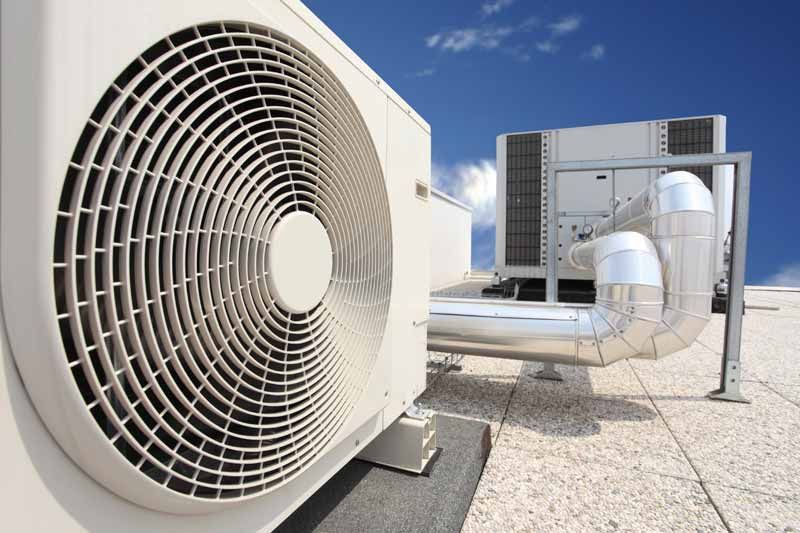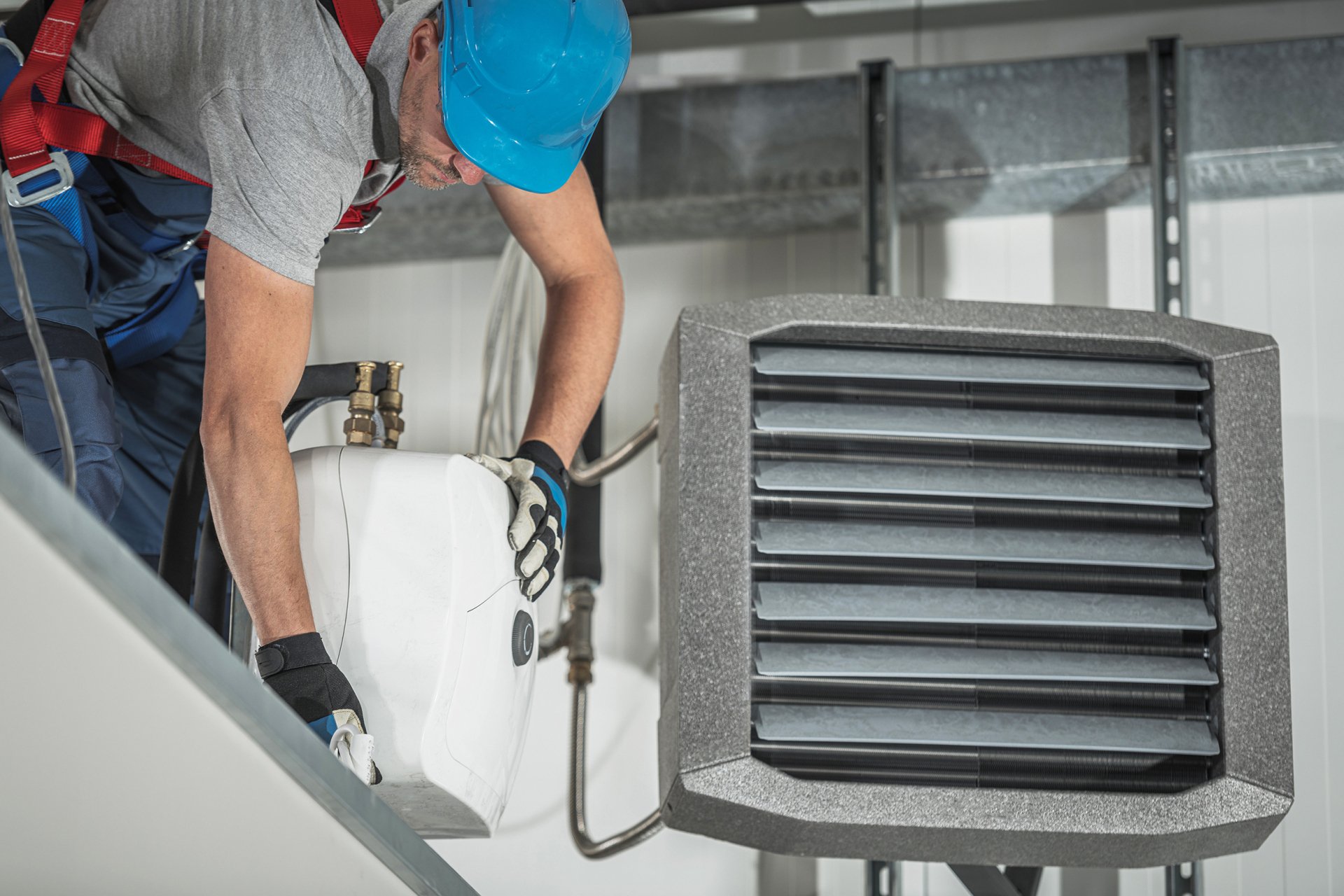Top Questions Answered About heat pump replacement ooltewah tn
Top Questions Answered About heat pump replacement ooltewah tn
Blog Article
How a Heatpump and Heating System Interact to Optimize Your Home's Home heating Effectiveness
Comprehending just how a heatpump and furnace collaborate is essential for house owners looking for reliable heating remedies. Each system has its toughness, providing a well balanced strategy to home convenience. The heatpump excels in moderate temperature levels, while the heating system provides rapid heat during extreme cold. This harmony not only lowers power prices but also boosts the life expectancy of both appliances. What factors affect this cooperation, and exactly how can homeowners optimize their benefits?
Comprehending Heat Pumps: Just How They Work
Several people might be unfamiliar with their internal workings, heat pumps play a necessary role in contemporary heating systems. These devices operate by moving heat from one area to another, utilizing the principles of thermodynamics. In colder months, a warmth pump removes heat from the outside air, ground, or water, and transfers it indoors to heat the space. Alternatively, during warmer months, it can turn around the process, acting as an air conditioning system by getting rid of warmth from inside to the outside.Heat pumps contain an evaporator, compressor, growth, and condenser shutoff. The cooling agent within the system soaks up warmth as it vaporizes at low temperatures and stress. The compressor then enhances the pressure and temperature of the refrigerant, permitting it to release heat as it condenses. This efficient process can considerably minimize power usage contrasted to typical home heating techniques, making warm pumps a lasting selection for environment control in homes.
The Function of Heaters in Home Home Heating
Heating systems play a necessary role in home heating by providing a reputable resource of heat during the colder months. They run by generating warmth with combustion or electric resistance, distributing it throughout the home via air ducts or glowing systems. The effectiveness of a heater is often measured by its Annual Fuel Usage Effectiveness (AFUE) score, which suggests how effectively the device transforms fuel into heat.Furnaces can make use of various energy resources, including gas, oil, propane, or electrical energy, enabling homeowners to choose one of the most appropriate alternative for their demands. Unlike warm pumps, which may have a hard time in severe cold, heaters maintain constant efficiency, making certain that indoor temperature levels stay comfy no matter exterior problems. Additionally, modern-day furnaces commonly come geared up with advanced innovation, such as variable-speed blowers and clever thermostats, improving their performance and responsiveness. This flexibility makes heaters a vital part in all-inclusive home heating techniques.

Advantages of Using Both Equipments With Each Other
Integrating the strengths of both furnaces and heat pumps can bring about an extra efficient and effective home heating service. Using both systems enables property owners to benefit from the heatpump's energy performance throughout milder temperature levels while depending on the heater for even more extreme cold problems. This twin strategy can considerably reduce power costs, as heatpump consume much less power than typical home heating methods when temperature levels are moderate.Additionally, using both systems together can boost comfort degrees in the home. Heat pumps can provide regular, even home heating, while heating systems can swiftly raise ambient temperature levels when needed. Additionally, the integration of both systems can prolong the life-span of equipment by lowering damage on each unit, as they share the work. Inevitably, property owners can appreciate a balanced, economical home heating service that adjusts flawlessly to differing climate condition, making certain a cozy and inviting home throughout the winter season.
How Warm Pumps and Furnaces Complement Each Other
When homeowners integrate warmth pumps and heating systems, they create a complementary heater that makes best use of efficiency and convenience. Warmth pumps run by transferring warm from the outdoors air or ground, making them highly effective in modest environments. They stand out throughout milder temperature levels, giving economical home heating. Alternatively, furnaces produce warmth with burning or electric resistance, delivering strong, immediate warmth throughout severe chilly conditions.The combination of these 2 systems enables dynamic modifications based on temperature level fluctuations. During warmer months or milder winter days, the heatpump can take the lead, saving power and reducing costs. As temperature levels decline, the heating system can flawlessly involve, guaranteeing constant heat throughout the home. This synergy not just optimizes power usage but also boosts the life-span of both systems, as each device runs within its excellent efficiency array. With each other, they develop a balanced setting that adapts to differing environment demands.
Optimizing Effectiveness: Tips for Homeowners
Property owners can enhance their home heating efficiency via several practical approaches. Establishing a routine upkeep schedule, incorporating clever thermostat innovation, and implementing reliable insulation and securing remedies are vital actions. These measures not just improve convenience but additionally decrease energy prices.
Normal Upkeep Set Up
To ensure optimal home heating efficiency, establishing a routine upkeep timetable is vital for any kind of home. House owners should prioritize routine examinations of both warm pumps and furnaces to identify peak efficiency. This includes transforming air filters every one to 3 months, as clogged up filters can substantially lower effectiveness. Furthermore, scheduling professional upkeep at the very least annually allows technicians to determine and deal with possible problems prior to they rise. Homeowners should likewise cleanse the heat pump's outdoor unit to avoid particles buildup that can impede air flow. By sticking to a routine maintenance timetable, home owners not just boost their heating systems' effectiveness but likewise expand their lifespan, bring about better convenience and minimized power prices throughout the chillier months.
Smart Thermostat Integration
Incorporating a clever thermostat right into a home heating unit can greatly improve power effectiveness, especially as it enables accurate control over temperature level settings. These gadgets can discover the property owner's routine and choices, automatically adjusting the temperature level to optimize comfort while lessening energy use. They can decrease heating throughout times when the home is vacant, reducing unneeded consumption. Many clever thermostats also supply real-time energy use information, allowing home owners to make enlightened choices regarding their heating habits. Furthermore, remote gain access to through smart device apps permits customers to change setups from anywhere, making sure the home is warm upon return. Overall, clever thermostat integration not just improves comfort however considerably adds to power savings and performance.
Insulation and Sealing Solutions
Smart thermostats play an essential function in power efficiency, yet their effectiveness can be significantly boosted by correct insulation and securing options. Property owners need to focus on insulating floorings, walls, and attic rooms to decrease warm loss. High-grade insulation materials, such as spray foam or fiberglass, can significantly enhance thermal resistance. Additionally, sealing spaces around doors, ducts, and windows stops cool air seepage and warmth retreat. Weatherstripping here and caulking work approaches for resolving these leakages - ductless mini splits. Regular inspections for air leaks, along with making use of blower door tests, can assist recognize issue areas. By buying insulation and sealing, property owners can optimize the performance of their furnace, eventually causing minimized energy consumption and reduced energy costs
Typical Myths About Warm Pumps and Furnaces
What misconceptions border heatpump and furnaces? Numerous individuals erroneously think that heat pumps are ineffective in colder environments. In truth, modern heat pumps are developed to run effectively even in reduced temperatures, giving trusted heating throughout winter season. An additional typical myth is that heaters are always much more reliable than heat pumps. This depends on the details energy resources and effectiveness scores of the devices in concern. Some might likewise think that making use of both systems concurrently is unnecessary, yet as a matter of fact, this combination can maximize home heating efficiency, particularly throughout extreme weather. Additionally, people commonly assume that warm pumps call for constant maintenance, when in fact, they have similar maintenance requires to conventional home heating systems. By debunking these myths, house owners can why not look here make even more enlightened decisions regarding their home heating choices, inevitably causing enhanced comfort and power effectiveness in their homes.
Maintenance Considerations for Combined Solutions

Regularly Asked Questions
Can Heat Pumps Job Properly in Extremely Cold Climates?
Heatpump can struggle in very cool climates due to decreased effectiveness and heat removal constraints. Improvements in innovation have led to versions developed for better performance in such problems, boosting their feasibility in severe settings.
How Much Time Do Heat Pumps and Furnaces Usually Last?
Heat pumps usually last 15 to twenty years, while heaters have a life-span of 15 to 30 years. Routine upkeep can prolong their longevity, making certain reliable procedure and decreasing the requirement for early substitutes.

What Is the Ordinary Expense of Installing Both Solutions?
The average price of setting up both a heatpump and a heating system generally varies in between $5,000 to $10,000 - heat pump replacement ooltewah tn. Aspects influencing this expense include system dimension, installment intricacy, and regional labor rates
Exist Tax Obligation Incentives for Making Use Of Energy-Efficient Home Heating Solutions?
Numerous house owners ask about tax rewards for energy-efficient home heating systems. Different government and state programs frequently use rebates or credit scores, motivating the fostering of lasting technologies to lower power consumption and promote environmental obligation.
How Do I Select the Right Dimension Warmth Pump and Heater?
Picking the appropriate size heatpump and heater involves calculating the home's square footage, thinking about insulation high quality, and examining neighborhood environment. Consulting a professional can guarantee perfect system performance and power efficiency based upon details demands. heat pump service. Recognizing how a heat pump and heater job with each other is necessary for property owners seeking effective home heating remedies. In cooler months, a warmth pump extracts warm from the outside air, ground, or water, and transfers it indoors to warm the living room. When property owners integrate warm pumps and furnaces, they produce a corresponding heating system that makes the most of performance and comfort. Warmth pumps run by transferring warmth from the outside air or ground, making them extremely effective in moderate environments. Warm pumps can struggle in exceptionally cold environments due to minimized effectiveness and warmth extraction restrictions
Report this page